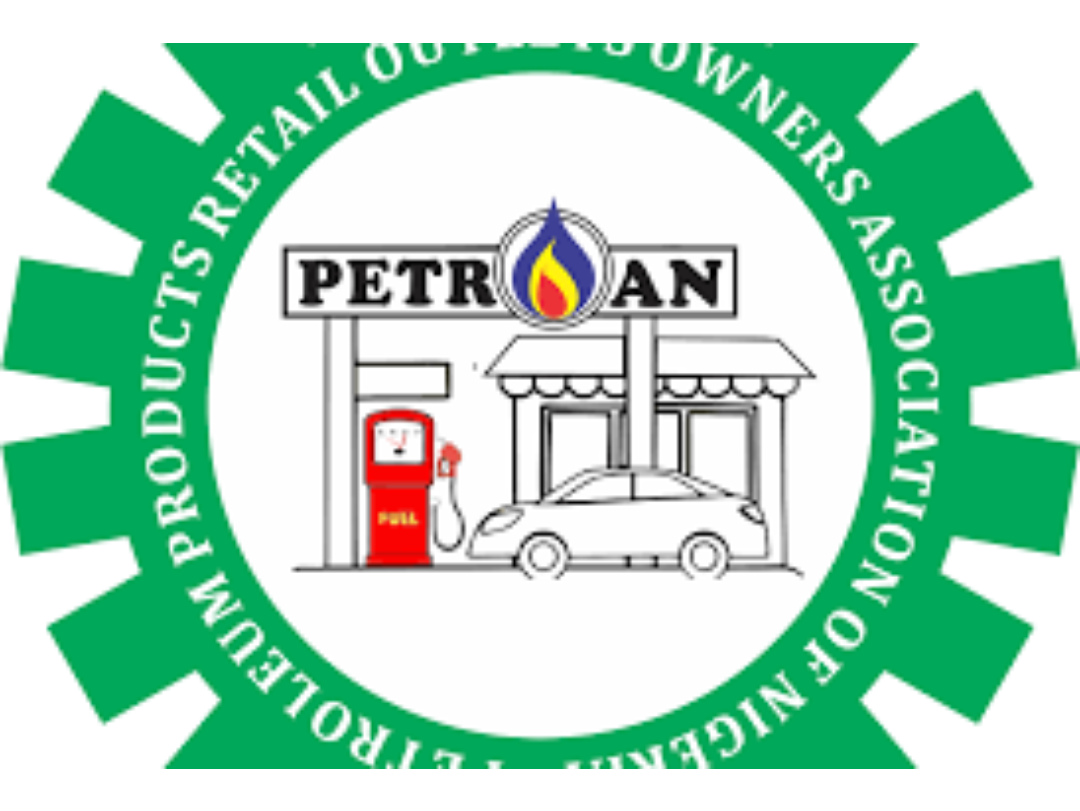Oil & Gas
Increase Crude Oil, Gas Production to Avert Importation for Refineries – Wabote

Mr Simbi Wabote, the Executive Secretary of the Nigerian Content Development and Monitoring Board (NCDMB), has warned against Nigeria’s potential reliance on imported crude oil for its existing and upcoming refineries.
This, he noted, could happen if immediate measures were not taken to address the current low production levels.
Wabote gave the warning in his goodwill message at the 41st Annual Conference and Exhibition of the Nigerian Association of Petroleum Explorationists (NAPE) on Monday in Lagos.
Wabote expressed his concern over Nigeria’s underwhelming production of crude oil and gas, despite the country’s abundant reserves.
He urged members of NAPE and other industry stakeholders to collaborate in reversing the situation.
Wabote specifically emphasised the need to closely monitor Nigeria’s 37 billion barrels of oil reserves, particularly due to the ongoing efforts to revamp existing refineries and establish new ones.
He cautioned that it would be unfortunate if, after ceasing the importation of refined petroleum products, Nigeria were to resort to importing crude oil for the operation of its local refineries.
Wabote commended the vital role played by petroleum explorationists in the energy sector.
He acknowledged their contribution to the discovery, evaluation, and establishment of reliable and sustainable oil and gas reserves.
In terms of natural gas, Wabote revealed that Nigeria possesses approximately 208 trillion cubic feet (TCF) of proven gas reserves, in addition to around 600 TCF of unproven reserves.
He encouraged petroleum explorationists to utilise their expertise and advanced technology to determine the recoverable volumes from these unproven reserves and develop the proven ones.
Highlighting the significance of gas, Wabote stated that it was no longer considered a transitional fuel in Nigeria but had become the ultimate destination fuel.
He assured that the NCDMB remained fully committed to supporting President Bola Tinubu’s gas business agenda.
Discussing the conference’s theme, “Repositioning the oil and gas industry for future energy dynamics”, Wabote stressed the critical importance of addressing the energy trilemma.
According to him, this involves finding a balance between energy security, sustainability, and affordability.
He acknowledged that the world is currently at a crucial juncture where careful considerations must be made to tackle this challenge effectively.
He indicated that repositioning the Nigerian oil and gas industry for national development required collaboration and partnerships with key players and agencies across the upstream, midstream and downstream sectors and its entire value chain.
He said that the Nigerian Oil and Gas Content Development Act (2010) provided the compass to enable the development and growth of local capacities and capabilities in the Nigerian oil and gas industry.
Waboted commended the Federal Government’s determination to sustain the gains realised in the oil and gas industry and the eagerness to consolidate them rather than reverse the gains of Nigerian Content.
He conveyed the board’s readiness to support various oil and gas initiatives that would ensure patronage of local investments, boost investors’ confidence, and create jobs to sustain the relative peace in the oil and gas sector. (NAN)
==========
Oil & Gas
PETROAN says Dangote Fuel Plan Threatens Downstream

Petroleum Products Retail Outlets Owners Association of Nigeria (PETROAN) on Monday raised alarm over the plan by Dangote Refinery to start direct nationwide distribution of petrol and diesel.
In a statement issued on Monday, PETROAN spokesperson, Mr Joseph Obele, said the move by Dangote could have consequences on the country’s downstream sector,
According to him, such consequences include widespread job losses and the shutdown of small businesses.
On June 15, Dangote Refinery disclosed its plan to distribute petrol and diesel directly to consumers across Nigeria.
Reacting to this development, PETROAN National President, Dr Billy Gillis-Harry, warned that such strategy could create a monopolistic market structure, stifling competition and threatening thousands of livelihoods in the sector.
“With a production capacity of 650,000 barrels per day, Dangote Refinery should be positioning itself to compete with global refiners rather than engaging in direct distribution within Nigeria’s downstream sector,” Gillis-Harry said.
He stated that this move undermines the survival of independent marketers, truck owners, filling station operators, and modular refinery operators who rely on the existing supply chain structure.
Gillis-Harry noted that Dangote’s dominance could lead to higher fuel prices due to reduced competition and business closures across the fuel retail landscape.
The president said that the situation could also lead to massive job losses among truck drivers, petroleum product suppliers, and station operators
He cautioned that the introduction of 4,000 new Compressed Natural Gas (CNG)-powered tankers by Dangote, which might lower transportation costs, could pose a threat to the jobs of traditional tanker drivers and owners.
“Filling station operators, truck owners, telecom diesel suppliers, and modular refineries are all at risk.
“Dangote’s approach could trigger a pricing penetration strategy aimed at capturing market share and forcing competitors out of the market,” Gillis-Harry added
The PETROAN boss said that Dangote’s market influence might allow for price setting that could disadvantage consumers, noting similar patterns in other industries where the conglomerate operates.
Gillis-Harry, therefore, urged the Executive Director of the Nigerian Midstream and Downstream Petroleum Regulatory Authority (NMDPRA) and the Minister of State for Petroleum Resources to urgently introduce price control mechanisms and enforce fair competition policies.
“Competition must be protected and encouraged to safeguard consumers, preserve jobs, and maintain a healthy petroleum distribution ecosystem,” he stressed. (NAN)
Oil & Gas
NNPC Ltd. Records N5.8bn revenue, N748bn PAT in April

The Nigerian National Petroleum Company Limited (NNPC Ltd.) has announced a revenue of N5.89 billion and a Profit After Tax (PAT) of N748 billion for the month of April.
The NNPC Ltd. disclosed this in its Monthly Report Summary for April, released on Thursday.
The report highlights key statistics, including crude oil and condensate production, natural gas output, revenue, profit after tax and strategic initiatives during the period.
The report said that NNPC Ltd made statutory payments of N4.
22 billion between January and March.According to the report, crude oil and gas figures are provisional and reflect only NNPC Limited’s data.
It said that It excluded volumes of independent operators reported by the Nigerian Upstream Petroleum Regulatory Commission (NUPRC).
“Crude oil and condensate production averaged 1.606 million barrels per day (bpd) in April, while natural gas production was 7.354 million standard cubic feet daily.
“Petrol availability at the NNPC Ltd. retail stations recorded 54 per cent during the month under review, while upstream pipeline reliability was 97 per cent,” it said.
On its strategic efforts, it said that the company was collaborating with Venture Partners to accelerate Sustainable Production Enhancement.
It said that it completed the implementation of relevant presidential directives and Executive Orders for its upstream operations.
The report listed some Technical Interventions on Ajaokuta-Kaduna-Kano (AKK) pipeline and the Obiafu-Obrikom-Oben (OB3) gas pipelin to resolve challenges of River Niger crossings.
It said that the OB3 gas pipeline project was 95 per cent completed in the month, while the AKK pipeline was 70 per cent completed.
The report said that Turnaround Maintenance (TAM) was completed in several Oil Mining Leases (OML), including OML 18, OML 58, OML 118, and OML 133.
On Refineries Status, it said that the Port Harcourt Refinery Company (PHRC), as well as the Warri and Kaduna refineries were currently under review.
According to the report, all financial figures are provisional and unaudited, and all operational and financial data are for April unless indicated otherwise. (NAN)
Oil & Gas
NNPC Ltd. Disclaims Fake Financial Scheme

The Nigerian National Petroleum Company Limited (NNPC Ltd.) has disowned a fake AI-generated video circulating on social media featuring a cloned voice of the Group CEO, Mr Bayo Ojulari, promoting a fictitious poverty alleviation scheme.
The Chief Corporate Communications Officer, NNPC Ltd.
, Olufemi Soneye in a statement on Thursday clarified that the company had no such investment initiative.Soneye urged the public to disregard the video, originally shared by an account named Mensageiro de Cristo on Facebook.
“NNPC Ltd. has warned the perpetrators to cease their fraudulent actions or face legal consequences,” he said. (NAN)



















